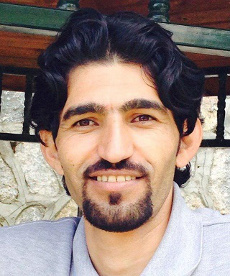The Ongoing Saga of the AMIA Bombing Investigation
 In the summer of 1994, a deadly explosion rocked downtown Buenos Aires and destroyed the AMIA, a Jewish cooperative, killing 85 people and injuring more than 151 others. The protracted investigation of the Argentine prosecutor determined that the bombing had been masterminded by the Islamic Republic of Iran and carried out by Hezbollah operatives.
In the summer of 1994, a deadly explosion rocked downtown Buenos Aires and destroyed the AMIA, a Jewish cooperative, killing 85 people and injuring more than 151 others. The protracted investigation of the Argentine prosecutor determined that the bombing had been masterminded by the Islamic Republic of Iran and carried out by Hezbollah operatives.
Some 18 years after the event, the Argentine President Cristina Fernandez de Kirchner, in New York for the 2012 Annual United Nations General Assembly, stated that Iran had “proposed to conduct a dialogue on the matter” with Argentina. She further stated that preliminary negotiations would take place in the next few days between the foreign ministers of the two countries, on the sidelines of the U.N. General Assembly.
The ongoing investigation of the AMIA explosion has become one of the longest-running judicial proceedings in Argentine history. Authorities have questioned over 1200 people so far, as witness, person with knowledge, or as accused. The result of this investigation was the issuance of indictments by the Argentine judge against of nine Iranian high-level officials, including former President Hashemi Rafsanjani and former Foreign Minister Ali Akbar Velayati, former commander of the Revolutionary Guards Mohsen Rezai, former Information Minister Ali Fallahian, and former head of the Revolutionary Guards’ Qods Force and current Defense Minister Ahmad Vahidi, asking INTERPOL[1] to take action. In March 2007, INTERPOL finally issued international arrest warrants for all those named with the exception of former President Rafsanjani and Ali Akbar Velayati. Although the Islamic Republic authorities have denied involvement in the AMIA bombing, in September 2009, the Secretary General of INTERPOL travelled to Iran and held discussions on the matter with a number of Iranian authorities.
In her address at the United Nations on September 25, 2012, President Kirchner further stated that any proposals by Iran would have to be approved by the Argentine Congress, which is the ultimate decision-making body on the matter, and that she would not take any action without consulting the families of the victims. A similar offer had been made in 2011, which Argentina welcomed and to which it responded by asking Iran to surrender those for whom indictments had been issued.
Based on the understanding that Iran’s civil society has a duty to acknowledge and bring visibility to the violations of human rights and attacks on civilians by the Iranian government regardless of the victims’ nationality, ethnicity, or religion, the Boroumand Foundation took it upon itself to investigate the 1994 AMIA bombing in Buenos Aires, Argentina. The result of this investigation was an in-depth report that was published in English and Farsi a few years ago. For the full story please click on the following link:
http://www.iranrights.org/english/document-636.php
[1] The International Criminal Police Organization (ICPO), widely known as INTERPOL, is an organization facilitating international police cooperation.





 My Interrogator Said: You Are An Ass, And Asses Do Not Merit Human Rights
My Interrogator Said: You Are An Ass, And Asses Do Not Merit Human Rights